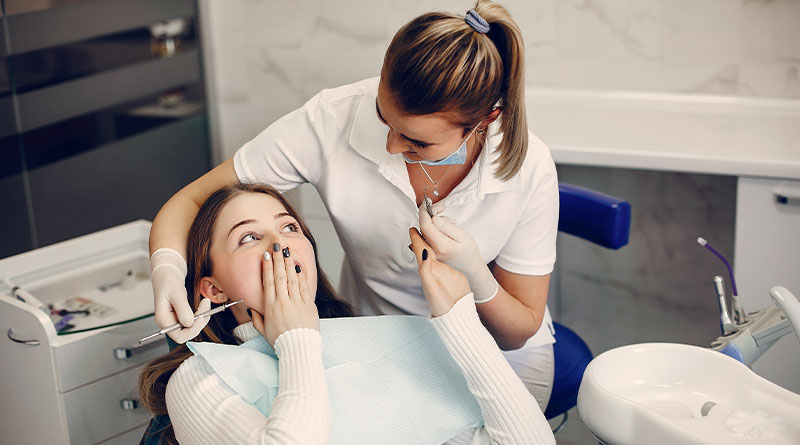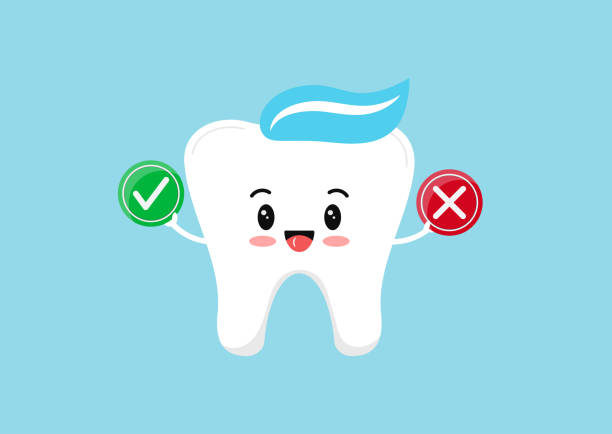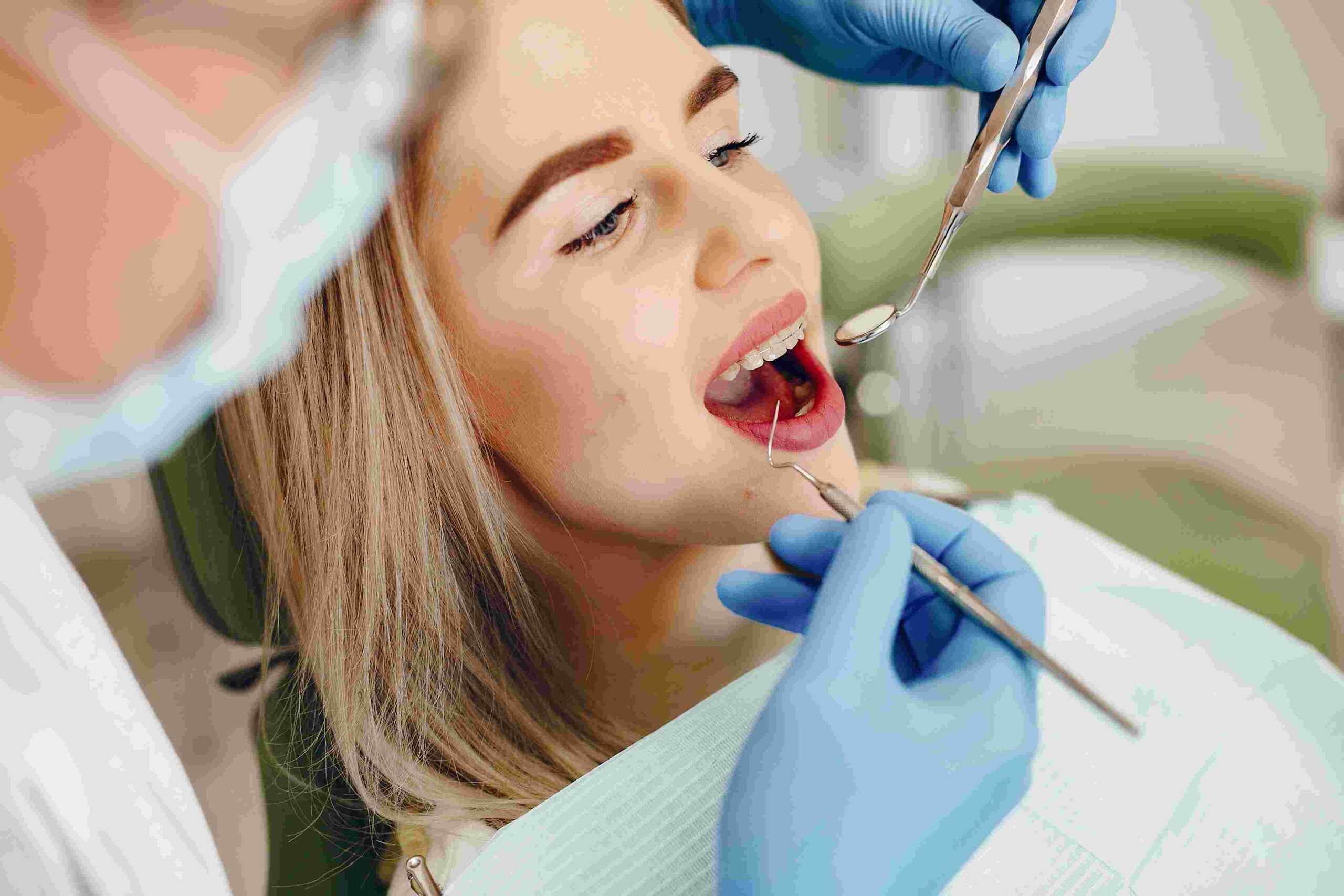Have you ever brushed your teeth and noticed blood on your toothbrush? That little streak of red can throw you off, especially if it keeps happening. You start wondering—did I brush too hard, or is something wrong with my gums?
I’ve been there myself. At first, I ignored it, thinking it would just go away. But the truth is, bleeding gums don’t just “happen.” There are always reasons behind it. And if you keep ignoring it, the problem usually gets worse.
In this post, I’m going to share 7 common reasons for gum bleeding and what you can actually do about it. And if you’re living in Dubai, I’ll also explain why visiting the best dental clinic in Deira might be the smartest move you make for your dental health.
Let’s get into it.
7 Reasons for Gum Bleeding and What You Can Do About It
Brushing Too Hard
This is probably the most common mistake. A lot of people (me included, years ago) think the harder you brush, the cleaner your teeth will be. But gums are sensitive. They don’t need scrubbing—they need gentle care.
When you push too hard with your toothbrush, you’re not only wearing down your enamel, but you’re also cutting into your gums. That’s why they bleed.
What helps:
- Get a soft-bristled brush. Hard ones only cause more harm.
- Hold your brush at a 45-degree angle and move in small circles instead of back-and-forth scrubbing.
- Replace your toothbrush every three months. Old bristles bend and scratch more.
Ask yourself: Do your gums feel sore after brushing? If yes, it’s probably not the toothpaste—it’s your brushing style.
Gum Disease (Gingivitis and Periodontitis)
This is the big one. Gum disease is one of the leading reasons for gum bleeding, and sadly, a lot of people don’t even realize they have it until it’s advanced.
It usually starts with gingivitis. Your gums get irritated by plaque, they look red, feel swollen, and yes—they bleed easily. If gingivitis isn’t treated, it can progress into periodontitis. That’s when the bone holding your teeth starts to get damaged.
How do you know if it’s gum disease? Watch out for:
- Persistent bad breath
- Gums pulling away from teeth
- Teeth feeling loose or wobbly
If you’re experiencing any of these, this is not something you can fix at home. You need professional cleaning. If you’re in Dubai, the best dental clinic in Deira can do scaling and deep cleaning to stop the infection before it goes too far.
Poor Oral Hygiene
Let’s be honest—we all skip brushing once in a while. You’re tired, it’s late, and you think, “One night won’t hurt.” The problem is, it adds up. Plaque forms fast, and if you don’t clean it regularly, it hardens into tartar. And tartar is not something you can brush away at home.
The basics (that actually work):
- Brush twice a day for at least two minutes.
- Floss once a day, even if you hate it.
- Use mouthwash if you can, but don’t rely on it as a substitute.
Consistency is the hardest part. I used to brush every morning, but would sometimes skip at night. Once I fixed that habit, my gums stopped bleeding. It’s the small changes that make the difference.
Vitamin Deficiencies
Diet plays a bigger role in gum health than most people think. If your body isn’t getting enough vitamin C, your gums can get weak and bleed easily. Same with vitamin K, which is needed for proper clotting.
Where to get them:
- Vitamin C: oranges, kiwis, bell peppers, broccoli.
- Vitamin K: spinach, kale, lettuce.
If your meals mostly come out of boxes or takeout bags, that might explain your gum issues. Adding even a couple of servings of fresh fruits and veggies each day can make a difference.
Medications
Some medicines affect your gums more than you’d expect. Blood thinners, aspirin, and even certain painkillers make your blood clot more slowly. That means if your gums are irritated, they’ll bleed more than usual.
The key here is communication. Don’t stop your medication on your own, but let your dentist know what you’re taking. A good dentist—again, try the best dental clinic in Deira if you’re nearby—will adjust your treatment and give you tips to minimize bleeding.
Hormonal Changes
If you’re pregnant, going through puberty, or taking birth control pills, your gums might act up. Hormones can make your gums more sensitive to plaque, so what used to be a normal brushing routine suddenly causes bleeding.
“Pregnancy gingivitis” is actually a thing. It doesn’t mean you’re not brushing properly—it just means your gums are more vulnerable. Regular dental visits during these times are crucial.
Stress and Lifestyle Habits
Here’s one people don’t talk about enough: stress. It weakens your immune system, making it harder for your body to fight infections, including gum disease. Add smoking or heavy drinking, and you’ve got a recipe for gum trouble.
Simple changes help more than you think:
- Cut back on smoking or, better yet, quit.
- Reduce alcohol, especially sugary drinks.
- Find ways to manage stress—exercise, meditation, or even just taking time to rest properly.
I used to grind my teeth when stressed, and my gums would often feel sore. Once I got better at handling stress, even my gums improved.
What You Can Actually Do About Gum Bleeding
Knowing the reasons for gum bleeding is one thing. Taking action is the real step.
Here’s a straightforward checklist:
- Switch to a soft toothbrush.
- Brush gently and floss daily.
- Eat a diet rich in vitamins C and K.
- Stay hydrated (dry mouth makes things worse).
- Visit your dentist at least twice a year.
If you’ve tried all this and your gums are still bleeding, don’t delay. Book an appointment. If you’re in Dubai, look up the best dental clinic in Deira. A proper cleaning or early treatment will prevent bigger problems later.
FAQs
Q1: Why do my gums bleed when I floss?
Ans: It usually means your gums are inflamed from plaque buildup. Keep flossing gently every day. Most people see improvement within a week. If bleeding continues, get checked.
Q2: Can gum bleeding heal on its own?
Ans: Sometimes, yes. If it’s from brushing too hard, it can heal quickly once you change your habits. But if it’s gum disease, it won’t heal without professional treatment.
Q3: Which dentist should I see for gum bleeding in Dubai?
Ans: A general dentist or a periodontist (gum specialist). The best dental clinic in Deira usually offers both.
Q4: Is gum bleeding always gum disease?
Ans: Not always. It could be brushing too hard, vitamin deficiencies, medications, or hormones. Gum disease is common, though, so it’s best to rule it out.
Q5: How do I stop gum bleeding fast?
Ans: Try rinsing with warm salt water, switching to a soft brush, and flossing gently. But remember, this is temporary. Persistent bleeding needs a dentist.
Bleeding gums aren’t something you should ignore. It might just be your toothbrush technique, or it might be the early stage of gum disease. Either way, your gums are sending a signal.
Pay attention to it. Adjust your daily habits, improve your diet, and keep up with regular dental visits. And if you’re in Dubai, booking a check-up at the best dental clinic in Deira could save you from bigger dental problems down the line.
Next time you see a bit of blood while brushing, don’t panic—but also, don’t shrug it off. Small steps today can keep your gums and teeth healthy for years.
Sahil Sachdeva is the Founder of curemedoc.com and a Digital Marketing professional with years of experience. If you need help in Content writing and want to increase your website ranking, connect with him, as he has some premium websites where you can share blogs with DoFollow links and increase your website’s ranking on Google.





